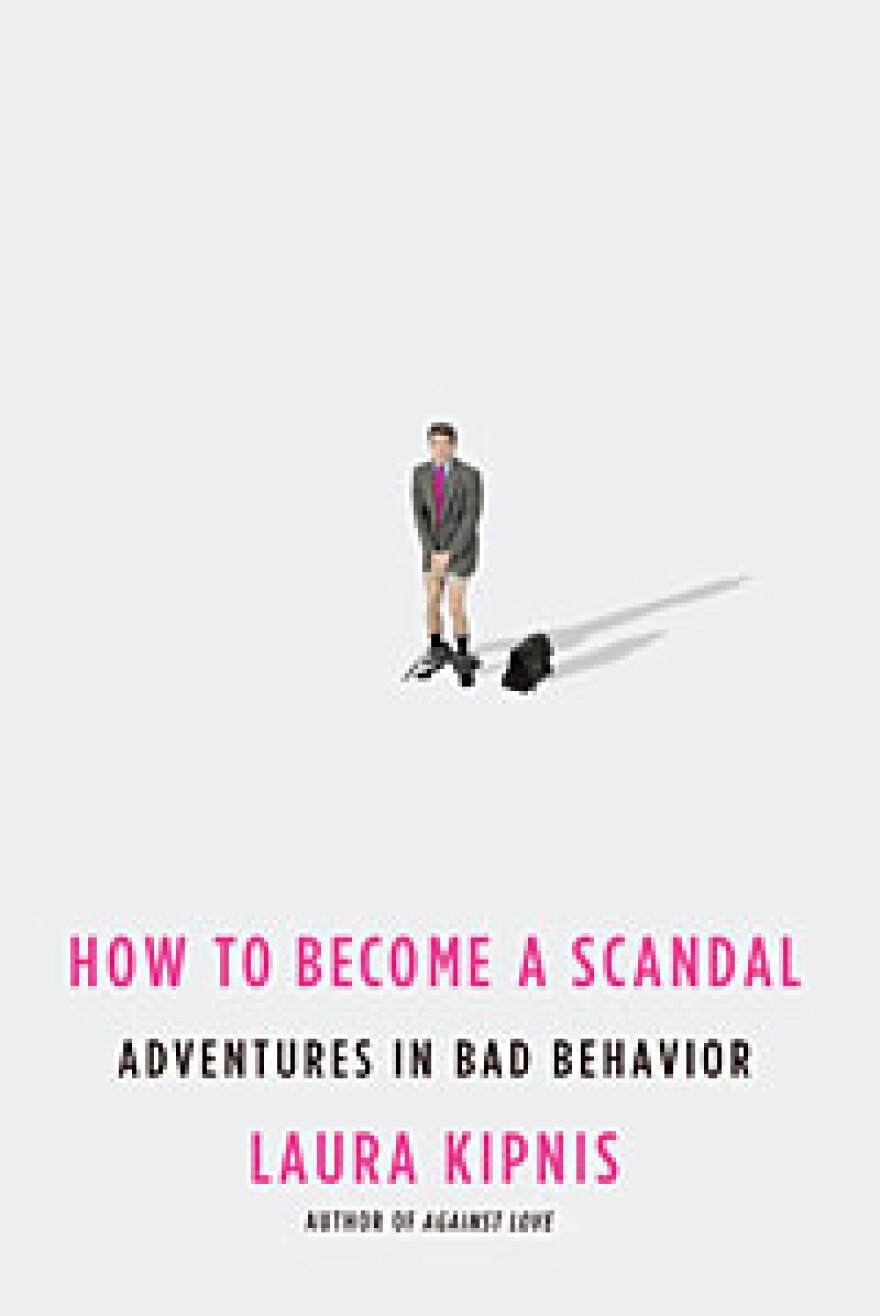If scandals teach us anything, it's that we shouldn't judge a book by its cover. A priest can be a pedophile. An "All-American" golf pro can cheat on his wife. A sanctimonious politician -- well, how much time do you have?
Yet Laura Kipnis' new book is like its cover.
The provocative title, How to Become a Scandal: Adventures in Bad Behavior, leads you to expect a lurid, splashy package with bold lettering. Instead, with its neat, white jacket, the book looks almost prim.
And this isn't misleading. Kipnis has taken on a big, titillating, inflammatory subject -- rather timidly.
To be fair, How to Become a Scandal is spirited and smart. Kipnis is a professor attempting to break new ground in scholarship. "We lack any real theory of scandal," she writes. "There's no scandal philosophy or psychology ... intellectually speaking, it's pretty much virgin terrain."
Given how much bad behavior seems to be making the headlines these days, her call is timely. Why not try to understand what compels so many smart people to do stupid, immoral and degrading things -- and what compels us, the public, to salivate over their downfall?
Scandals, Kipnis asserts, are a product of our own innate fallibilities -- blindness, hubris, irrationality, appetite. Because they remind all of us of our most carnal selves, scandals trigger conflicting desires -- to indulge and to punish.
When a few hapless figures are caught with their pants down, we get to live out our own taboos through them vicariously. At the same time, we get to experience a rush of indignation and righteousness. And so, perversely, scandals allow us to have our cake -- and renounce it, too. "Culture needs scandal," Kipnis declares.
Her book profiles four tabloid stars in-depth: the lovelorn astronaut caught stalking her romantic rival in diapers. A New York judge jailed after bizarrely trying to extort money from his mistress. Linda Tripp, reviled, wire-wearing whistle-blower in the Clinton-Lewinsky scandal. And James Frey, of fake-memoir infamy.
Yet like her subjects, Kipnis doesn't always fulfill her best intentions. Although How to Become A Scandal takes an intelligent look at the psychology behind bad behavior, the second part gives way to deconstructions of Linda Tripp and James Frey, at which point the book's thesis blurs.
Kipnis also leaves many huge, American scandals unmentioned. "I've avoided the glitziest cases, which tend to become too encrusted with opinion to yield surprises," Kipnis writes. Fine -- but this feels like a cop-out. Why not take on the most infamous scandals -- and recast them with fresh insight? Isn't this precisely what new scholarship should do? Besides, you're discussing scandal! Don't pussyfoot around!
Furthermore, some scandals are not delicious. They expose true hypocrisy, rottenness and crime -- again, think Catholic Church.
These scandals have not been greeted with secret "nasty glee" by the public -- only horror -- and a justifiable call for justice. They're a different breed to be sure -- but Kipnis never addresses them. In How to Become a Scandal, she's launched a promising new field of inquiry. But she needs to expand upon it -- and, like her subjects, grow bolder and more brazen.
Susan Jane Gilman is the author of Hypocrite in a Pouffy White Dress and Kiss My Tiara: How to Rule the World as a SmartMouth Goddess.
Copyright 2023 NPR. To see more, visit https://www.npr.org.

